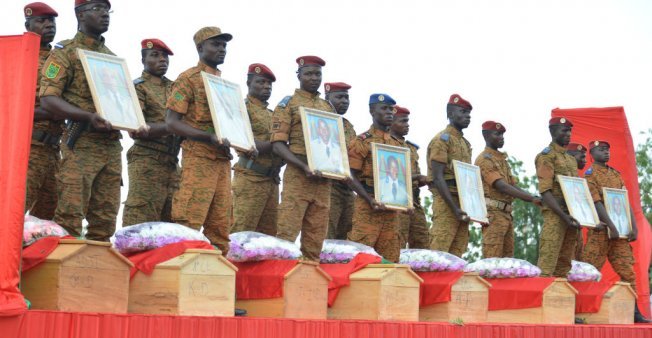What France wants us to know: In Burkina Faso, the terrorist threat is spreading to the east
Burkina Faso has become a frequent target for terrorist attacks. But while jihadist activity was previously confined to the north of the country, it is now moving to the east, a region already suffering from rampant organised crime.
On September 5, a group of Burkinabésoldiers were travelling to defuse mines laid by jihadist groups when, in the eastern town of Kabonga, they were hit by an improvised explosive device (IED). Two were killed and six were injured, while the perpetrators of the attack have not been identified.
This was the third deadly IED attack in a month in eastern Burkina Faso. “This is by no means a new phenomenon,” said Sidi Kounté, a sociologist specialising in jihadism in the Sahel. “But, since February, these attacks have become more and more frequent – daily even,” he told FRANCE 24.
Attacks on security forces ‘suggest jihadist group’
“We’re asking ourselves a lot of questions,” said Rodrigue Tagnan, an independent journalist focused on the Sahel, in an interview with FRANCE 24. “For example, we don’t know who the perpetrators of these attacks really are.”
This is a pressing question, especially in light of the fact that no one has claimed responsibility for these attacks. However, “the use of IEDs and the attacks targeting the security forces, police units and police stations all suggest that jihadist groups are responsible, although we should keep an open mind,” argued William Assanvo, an analyst at the ISS, a Pretoria-based think-tank specialising in African security and defence.
“The lack of any claims for these attacks might constitute a strategic move by a new group that is moving in and doesn’t yet have a solid base, but there’s no doubt that there’s an active group in the east of Burkina Faso,” Kounté added.
Attacks on capital
Since the fall of President Blaise Compaoré’s iron rule in October 2014, Burkina Faso – erstwhile relatively secure – has become a prime target for jihadist movements. However, these attacks were mainly confined to the north of the country, and were often perpetrated by terrorists crossing the border from neighbouring Mali. Until January 2016 – when 30 people were killed in an attack on Capuccino, a café popular with expatriates in the capital Ouagadougou. The terrorist group AQIM claimed responsibility.
In March 2018, a coordinated pair of terrorist attacks struck the French embassy in Ouagadougou and the General Staff of the Burkinabé armed forces, killing eight soldiers and wounding 60 people – and exposing the vulnerability of the fledgling democracy, after 27 years of Compaoré’s strongman rule.
The attack was claimed by the Group for the Support of Islam and Muslims (GSIM). Led by Iyad Ag Ghaly, the notorious Touareg separatist turned jihadist and the most wanted man in the Sahel, the GSIM was formed out of a merger between Ag Ghaly’s Ansar Dine group, Al Qaeda in the Sahel and a range of smaller militant groups in Mali and Burkina Faso.
But, thanks to the efforts of anti-terrorist local militias and French, Malian and Burkinabé forces, “GSIM have moved to new areas, probably including eastern Burkina Faso”, according to Kounté.
East neglected by central government
A forest region bordering Ghana, Togo, Benin and Niger, eastern Burkina Faso has long been regarded as a bastion of organised crime. Thanks to the central government’s neglect of the region, self-defence militias known as “koglweogo” have become the guarantors of security for the local population. And thanks to the dense forests and the lack of adequate road networks, the area is practically inaccessible for national security forces.
Thus, eastern Burkina Faso is fertile ground for jihadists. “All places where jihadists can go and settle have been abandoned by the national authorities,” Kounté noted. “The big, thick forests give jihadists a place to organise themselves and put plans in place,” Assanvo added.
A response from the Burkinabé government is long overdue. In a memo on the security situation in the east, relayed by local media, the regional police chief Commissioner Karim Drabo warned that “if security forces do not respond vigorously, the attackers will have time to settle and to spread IEDs throughout the areas they have occupied […] and they are gaining ground”.
But, according to Sidi Kounté, the Burkinabé army is already “overwhelmed by having to fight on numerous fronts”, while lacking sufficient manpower and equipment.
Alternatively, Burkina Faso could draw on the G5 Sahel, the French-backed military group set up in 2014 to combat armed groups in the region, combining troops from Burkina Faso, Mali, Mauritania, Niger and Chad. But, except for the latter two, these countries’ militaries “aren’t up to scratch”, François-Xavier Freland, an independent journalist specialising in the Sahel, argued in an interview with FRANCE 24 in April.
France 24





